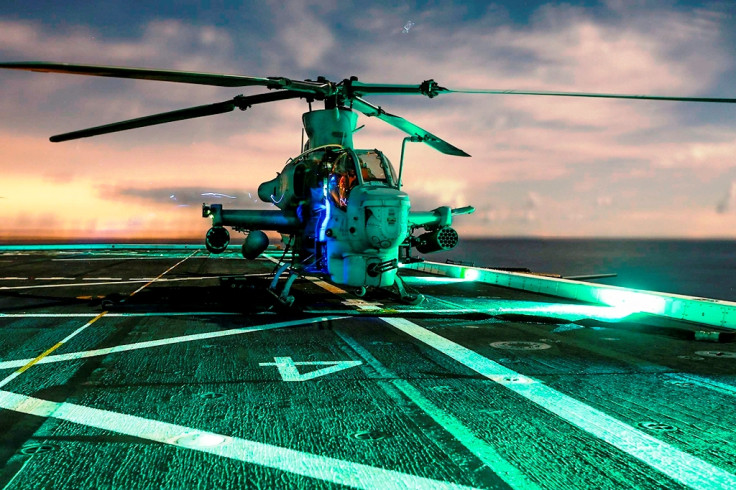US and Pakistan close in on near $1bn defence deal

The US and Pakistan have moved closer towards a billion dollar defence deal this week, with Washington alerting Congress of a plan to supply attack helicopters and missiles to bolster Islamabad's counter-terrorism efforts.
The $952m (£637.6bn, €877.3bn) proposal will see the US equip Pakistan with 15 AH-1Z attack helicopters, 1,000 Hellfire missiles, engines, targeting and positioning systems and other equipment, according to the US Defense Security Cooperation Agency (DSCA).
The helicopters and weapon systems are designed for counter-terrorism and counter-insurgency operations, particularly in the mountainous Taliban strongholds along the Afghanistan border, Reuters reported.
However, negotiations are not yet complete, the news agency added.
The DSCA, notified Congress of the proposed sale on 6 April.
The DSCA, in a statement, said: "...This proposed sale will contribute to the foreign policy and national security of the United States by helping to improve the security of a country vital to U.S. foreign policy and national security goals in South Asia.
"...This proposed sale will provide Pakistan with a precision strike, enhanced survivability aircraft that it can operate at high-altitudes. By acquiring this capability, Pakistan will enhance its ability to conduct operations in North Waziristan Agency (NWA), the Federally Administered Tribal Areas (FATA), and other remote and mountainous areas in all-weather, day-and-night environments... The proposed sale of this equipment and support will not alter the basic military balance in the region."
America has been pushing Pakistan to take on Taliban as it pulls out from neighbouring Afghanistan, which is battling its own Taliban insurgency.
Nuclear-armed Pakistan is also trying to buy eight submarines from China, for a reported cost of between $4bn and $5bn.
Beijing supplied 51% of the weapons Islamabad imported from 2010 to 2014, according to the Stockholm International Peace Research Institute (SIPRI), which tracks arms sales the worldover.
© Copyright IBTimes 2025. All rights reserved.






















